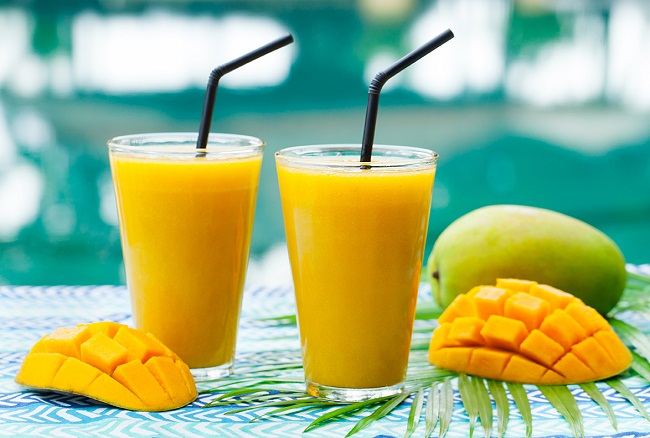Come summer and the fruit market would be buzzing with this juicy delight all over.
And not to forget that mango is known as the king of fruits.
But, wait!
Does it spring the same happiness at the sight of these mangoes for those affected with diabetes?
Now, that has been a debatable topic with dieticians and experts.
So if you’d like to know, read on to learn some interesting facts:
Amazing Benefits of Mangoes for people with Diabetes
This self-imposed forbidden fruit for a person with diabetes is actually a wonder fruit.
You ask how?
Although mangoes are high in sugar content, they also contains lower carbohydrates.
What does that mean?
Any fruit having lower carbohydrate or sugars generally means you can relish more of it, but it doesn’t mean you can’t enjoy the higher carbohydrate fruits!
Remember, you just need to keep a track of the total carbohydrates in a day.
The total carbohydrate intake for a person with diabetes on an average should be 100 grams per day.
Let’s look at the other vitamins that mango is famous for and how does it aid a person with diabetes.
Mango contains significant amount of vitamin E, K, and B complex. That aside, mangoes are high in fiber and contain calcium, potassium, & copper.
And did you know that the fiber in mango helps limit rapid absorption of the sugars?
Mango also contains some omega-3 and omega-6 fatty acids, though overall, are very low in fat content.
So you see, having mangoes is absolutely a good idea.
Do Mangoes Benefit Blood Glucose
A commonly used measurement to gauge the increase in sugar levels after consuming a carbohydrate food is the ‘Glycemic Index’ (GI). It helps to determine how quickly a given food causes your blood sugars to rise, comparing it to the effect of pure glucose.
So a food with low GI has less impact on blood sugars than a food with a high GI.
Luckily, mangoes have a low GI (average- 51) compared to other tropical fruits such as pineapple (56) or papaya (59).
Hence, a reasonable portion of mango – let’s say a quarter of a fruit, about 1/2 cup of cubed fruit, will have only minimal impact on your blood sugar levels.
Is Mango Good for Diabetes or Prediabetes?
Based on studies, mangoes have a significant role in the treatment of metabolic disorders.
Eating a mango every day could protect people against high cholesterol as well as diabetes.
High cholesterol is a major indicator of metabolic syndrome that is related to prediabetes.
According to the global dietary guidelines, about 15 grams of carbohydrates should come from a single serving of fruit for people affected with diabetes and below 25 grams for people with prediabetes. This is equal to half a small mango. The solution therefore is not avoiding, but consuming the right portion.
An alternate option – raw mangoes for diabetes
By now you may have come to a conclusion that eating mangoes in moderation is the key and not avoiding it completely.
However, for a diehard mango lover a measurable quantity consumption can be quite dissatisfying.
This is the reason most people with diabetes are advised to savor the raw mango.
Raw mango does not come with the threat of extra sugar content.
In fact, raw mangoes if consumed with yogurt or rice helps to cut the sugar levels in the body.
Conclusion
If you find mangoes irresistible, then just remember to limit your portion. Because, you’ll do no good to yourself by avoiding it completely.
Bottom line is maintain your blood sugar levels.











